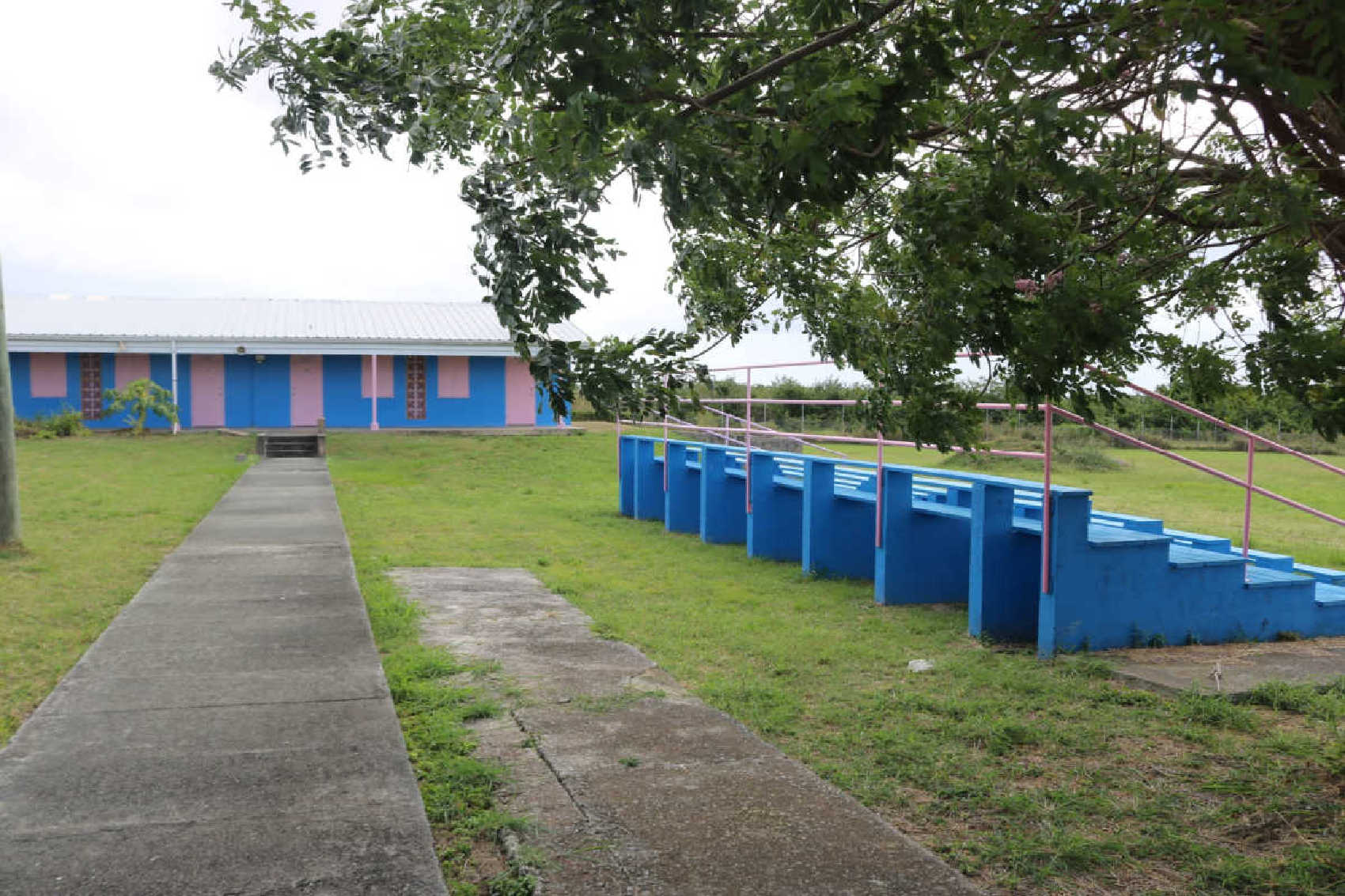Disaster Recovery
Global Unrest Complicates US Virgin Islands’ Pursuit of FEMA Fund Matching Waiver, Warns ODR Chief

The escalating geopolitical tensions in the Middle East and Eastern Europe are casting a shadow over the U.S. Virgin Islands’ efforts to secure a critical FEMA matching funds waiver, as communicated by Adrienne Williams-Octalien, the Director of the Office of Disaster Recovery. This waiver is essential for financing the territory’s ongoing disaster restoration projects.
Confronted with the challenge of generating the local 10 percent match for a range of public assistance grants — a sum that could ascend to $1.5 billion and overshadows the territory’s entire budget for the fiscal year 2023/2024 — the USVI is actively seeking an exemption. Despite determined lobbying efforts, the situation is fraught with uncertainty, exacerbated by the current global financial strain.
During a legislative session on Monday, Williams-Octalien shared her apprehensions with lawmakers, underscoring the gravity of the issue. Governor Albert Bryan Jr., steadfast in his commitment, has repeatedly reached out to various federal administrations to advance the waiver plea, as reported by the Consortium. The global discord has unfortunately intensified these complexities, potentially diverting funds and influencing the fiscal prioritization that could affect the waiver’s approval.
“The real issue at hand is the allocation of funds and where the U.S. government chooses to place its financial priorities,” Williams-Octalien remarked, referencing the U.S. financial engagements with Ukraine and Israel. Despite the small scale of the territory and its limited clout, the ODR Director affirmed their resolve to persist in their appeal.
During a Committee on Disaster Recovery, Infrastructure, and Planning hearing, questions arose regarding the certainty of securing the waiver and the exploration of alternative strategies. Senator Milton Potter scrutinized the agency’s dedication to this cause. Williams-Octalien recalled previous talks with Shalanda Young, the head of the United States Office of Budget and Management, which focused on the waiver for critical facilities. She admitted the territory’s formidable obstacles and the waiver’s precarious status.
Governor Bryan announced FEMA’s initial rejection of the waiver in early October, yet reassured that the quest for exemption would continue unabated. The ODR Director mentioned FEMA’s recent policy shift to prioritize immediate needs amidst budgetary limitations but expressed optimism due to ongoing constructive dialogues with the agency’s administrator.
The international conflicts pose a substantial threat to the financial strategy of the USVI, according to Williams-Octalien, impacting not just the availability of funds but also the governmental fiscal priorities. This presents a daunting scenario for the USVI as it strives to navigate the broader effects of international tensions on its recovery operations.
Disaster Recovery
Major Boost for USVI: Bryan Announces Up to $600 Million in FEMA Funding for Power Plant Replacement

In a significant development for the U.S. Virgin Islands, Governor Albert Bryan Jr. announced on Wednesday that the Federal Emergency Management Agency (FEMA) will fund the comprehensive replacement of the V.I. Water and Power Authority’s (WAPA) Estate Richmond Power Plant on St. Croix and upgrade several units on St. Thomas.
Governor Bryan revealed that the news came during a Monday call with FEMA, offering a much-needed boost for WAPA, which has been grappling with grid failures, power rotations, damaged equipment, adverse weather, and low fuel inventory.
“We are already well on the way to fixing the St. Thomas plant,” Bryan stated. “With this new addition, we can replace older and damaged units on St. Croix, significantly improving reliability and affordability by using more efficient units.”
Adrienne Williams-Octalien, director of the Office of Disaster Recovery, emphasized the benefits of an updated power plant, including better interconnections for renewable energy. She highlighted that the approval followed a joint request by ODR and WAPA to FEMA four years ago. This request covered the St. Croix power plant and multiple generators at the Randolph Harley plant on St. Thomas.
With FEMA’s approval, the agencies will start drafting solicitations and securing contracts promptly. The project costs, estimated between $400 million and $600 million, must be validated through FEMA’s costing center before funds are obligated. Williams-Octalien noted the importance of completing this by September to leverage the current relaxed matching funds requirements for local government. “We want to ensure that we get this project started within the next 12 months,” she said.
Despite the positive news, WAPA’s ability to manage this significant funding amid its financial and management crises remains a concern. Governor Bryan stressed the need for the agency’s staff and management to focus on ongoing projects, such as solar and wind farms, undersea cable repairs to St. John, and building redundancies in the power supply. He suggested incorporating the St. Croix power plant rebuild into the territory’s broader recovery efforts, as part of the billion-dollar Rebuild VI project packages designated for major contractors.
Kyle Fleming, chair of WAPA’s governing board, acknowledged that this funding is not a panacea for all of WAPA’s issues, including delays in crucial projects. However, he praised the Incident Command Team for making significant progress in addressing these challenges. “It really is a divide and conquer mentality,” Fleming said, noting that the incident command structure has improved team collaboration and focus.
As officials work to ensure the successful replacement of the Estate Richmond power plant on St. Croix, Governor Bryan has pledged unwavering support for WAPA’s efforts to achieve sustainable operations and a brighter energy future for the territory. “We got to do what we got to do to keep the power on,” he declared.
Disaster Recovery
Lawmakers Question Resilience of School Rebuilds Amid Stronger Storms and Rising Temperatures

Warmer global temperatures are presenting unprecedented challenges for the Caribbean, with islands facing more frequent and intense storms, hurricanes, and heat waves. These impacts are acutely felt in the U.S. Virgin Islands (USVI), where the territory is still grappling with the aftermath of Hurricanes Irma and Maria seven years on.
The V.I. Department of Education estimates it will take another seven to ten years to fully rehabilitate and rebuild schools across both districts. However, concerns have been raised about whether these new designs are adequately hurricane-resilient. This issue was highlighted by Senator Franklin Johnson during a recent Committee of Disaster Recovery, Infrastructure, and Planning meeting.
Senator Johnson questioned Education Commissioner Dionne Wells-Hedrington about the design choices, particularly the use of overhangs. “I’m not a builder, but I watch a lot of the drawings and I see a lot of hangovers,” Johnson remarked. He referred to past practices, such as removing overhangs to strengthen homes before Hurricane Hugo in 1989, and suggested that fewer overhangs might result in more secure roofs.
Chaneel Callwood, the department’s architect, explained that school principals requested overhangs to protect students from rain and sun while moving around the campus. To address the senator’s concerns, Ms. Callwood assured that the overhangs would be fortified with additional steel to withstand storms. She also noted that these plans have been approved by the Federal Emergency Management Agency (FEMA) and comply with hurricane codes, given that the USVI is in the “highest wind category.”
In addition to storm resilience, rising temperatures pose another significant challenge. In 2023, the Department of Education shortened school hours due to a severe heatwave, which led to student protests and a response from the governor. With fears of a repeat in 2024, Senator Novelle Francis inquired about the preparations being made.
Commissioner Wells-Hedrington highlighted the Eulalie Rivera K-8 school as particularly affected in the St. Croix district, with electrical upgrade plans already in the solicitation phase and air conditioning equipment available on the island. “It’s just a matter of all those things being taken care of so that the installation can be effective,” she said.
Other schools are also under consideration for air conditioning repairs and maintenance during the summer. However, the St. Croix Educational Complex lacks the infrastructure to support these upgrades. Consequently, the complex will not receive air conditioning units for the entire campus in the new school year. The commissioner emphasized that this school would be a central focus for the department as it continues to navigate funding constraints and deadlines in its ongoing school repair and replacement efforts.
Disaster Recovery
$384 Million FEMA Grant Boosts USVI School Rebuilding Efforts

The U.S. Virgin Islands will benefit from a significant federal boost, receiving $384.8 million from the Federal Emergency Management Agency (FEMA) for the demolition and reconstruction of hurricane-impacted schools. This marks a critical step in the territory’s ongoing recovery from the devastating effects of hurricanes Irma and Maria in 2017.
This transformative funding will facilitate the complete reconstruction of three elementary schools on St. Croix and one on St. Thomas, in addition to repairs to a school lunch warehouse on St. Thomas. These efforts are a part of FEMA’s continued partnership with the Virgin Islands government and its Department of Education to provide safe, modern educational environments.
Kristen A. Hodge, Director of FEMA’s Recovery Office in the U.S. Virgin Islands, reaffirmed the agency’s dedication to the territory’s educational future. “I am pleased to approve these latest obligations that help bring the Virgin Islands closer to post-hurricane recovery. Our commitment to the future leaders of the Virgin Islands by providing them safe facilities in which to receive their education remains strong,” she stated.
Project Highlights and Funding Specifics:
- Lew Muckle Elementary School on St. Croix will see prudent reconstruction of seven of its 11 buildings on a 3.94-acre site in Sion Farm.
- Eulalie Rivera Elementary School, also on St. Croix, will undergo the replacement of 12 structures, including classrooms and facilities such as the athletic field bathroom.
- Juanita Gardine Elementary School in Estate Richmond, St. Croix, is set for extensive rebuilding, including its auditorium and several auxiliary buildings.
- On St. Thomas, Leonard Dober Elementary School will have three buildings replaced following severe damage from the 2017 hurricanes.
- Additionally, repairs to a 7,000-square-foot lunch warehouse on St. Thomas will restore essential functionality and design.
Enabled by the Bipartisan Budget Act of 2018, these funds will allow the V.I. Department of Education to not only rebuild but also modernize educational facilities, merging several schools into updated campuses like Alfredo Andrews and Alexander Henderson Schools. Leonard Dober Elementary School will be closed as it is currently not used for instructional purposes.
The Department of Education expressed its appreciation for this federal aid. “These grant awards signify a pivotal moment for education in the Virgin Islands, allowing for the development of much-needed new schools and the modernization of existing facilities with a focus on equity for all students,” it said.
The department also highlighted the comprehensive nature of the funding. “It is essential to recognize that these grants cover more than construction. They extend to land acquisition, project management, demolition, and design,” VIDE noted. This comprehensive approach ensures thorough planning and execution to meet the highest educational standards.
-

 Education1 year ago
Education1 year agoEducation Board Seeks Input on Schools Through Comprehensive Survey
-

 Education2 years ago
Education2 years agoCTE Board Enthusiastic About New Curriculum Standards, Yet Anxious Over Apprenticeship Support
-

 Crime2 years ago
Crime2 years agoRegistered Sex Offender Detained for Illegal Firearm Possession During Annual Surveillance Drive
-

 Development1 year ago
Development1 year agoCosts Surge as Donoe Estates Housing Project Resumes with New Contractor
-

 Videos3 years ago
Videos3 years ago2022 Gubernatorial Election: Voters Speak Out
-

 Videos3 years ago
Videos3 years agoGubernatorial Teams Celebrate St. Croix’s Bull & Bread Day
-

 Videos3 years ago
Videos3 years agoWakanda’s Female Might: A Dive into ‘Black Panther: Wakanda Forever’
-

 Crime2 years ago
Crime2 years agoSt. John’s Westin Resort Scene of Armed Robbery, Prompting Heightened Police Vigilance




